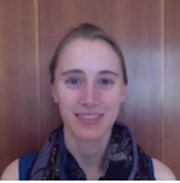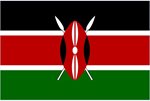Sardis Harward
 Sardis is a current second-year medical student at the University of Massachusetts Medical School. Her interest in global health began during her undergraduate education in medical anthropology at Brown University (Bachelor of Arts, anthropology) and later grew while pursuing a Master of Public Health degree at Dartmouth College. After obtaining her MPH, Sardis spent 12 months as a research fellow seconded to the Rwandan Minister of Health, during which time she focused primarily on palliative care and early childhood development policy research. After returning from Rwanda she spent the next three years as a Research and Data Manager at Merit Medical Systems, where she developed and coordinated phase 2 and phase 3 international clinical trials of interventional oncologic and urologic therapies while completing her premedical coursework. Sardis is particularly interested in global emergency medicine and novel approaches to high-quality healthcare delivery in resource-limited settings.
Sardis is a current second-year medical student at the University of Massachusetts Medical School. Her interest in global health began during her undergraduate education in medical anthropology at Brown University (Bachelor of Arts, anthropology) and later grew while pursuing a Master of Public Health degree at Dartmouth College. After obtaining her MPH, Sardis spent 12 months as a research fellow seconded to the Rwandan Minister of Health, during which time she focused primarily on palliative care and early childhood development policy research. After returning from Rwanda she spent the next three years as a Research and Data Manager at Merit Medical Systems, where she developed and coordinated phase 2 and phase 3 international clinical trials of interventional oncologic and urologic therapies while completing her premedical coursework. Sardis is particularly interested in global emergency medicine and novel approaches to high-quality healthcare delivery in resource-limited settings.
 Project: "Clinical Management of Anemia in Pediatric Burkitt Lymphoma Patients Residing in a Region with Holoendemic Plasmodium falciparum"
Project: "Clinical Management of Anemia in Pediatric Burkitt Lymphoma Patients Residing in a Region with Holoendemic Plasmodium falciparum"
6/01/2018 - 7/20/2018
Kenya
What does the Kean Fellowship mean to you?
The Kean Fellowship represents an opportunity to learn about a health system unlike the one in which I am training and the unique challenges that healthcare providers face in resource-limited settings. Although I have previously been involved in health policy research in East Africa and clinical trials on four continents, this will be my first immersive experience in clinical care outside of the United States.
What interests you about tropical medicine and what problems are you interested in solving?
I have had the privilege to learn from many incredible mentors, among them Prof. Agnes Binagwaho, the current Vice Chancellor of the University for Global Health Equity and former Rwandan Minister of Health. Prof. Binagwaho is a tireless champion for global health equity and is very outspoken in her belief that where a patient lives should never determine if that patient lives. Global emergency medicine is a rapidly growing field and I believe that it has a significant role to play in developing solutions to reduce preventable deaths everywhere, including in areas where neglected tropical diseases are prevalent and represent a significant source of morbidity and mortality.